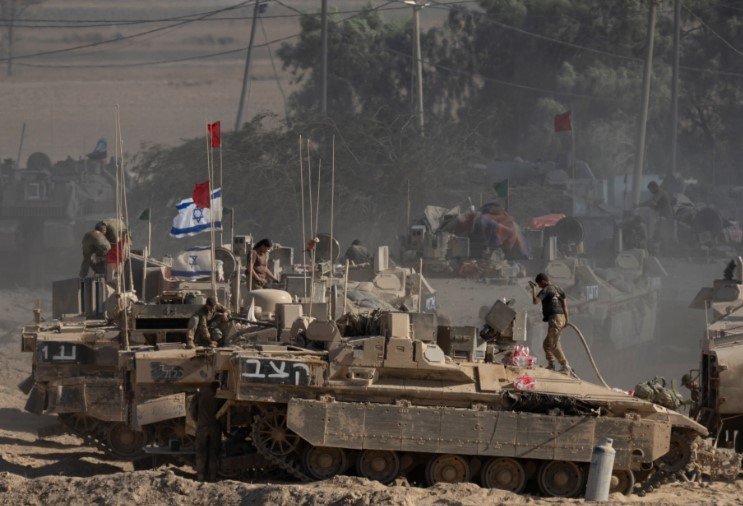Egypt is poised to lead an international stabilization force in Gaza as part of President Donald Trump’s peace plan, but experts warn this role brings major risks for Cairo. The move comes after the recent Israel-Hamas ceasefire, with the force set to handle security, disarm militants, and aid reconstruction starting in late 2025.
Background on Gaza Stabilization Plan
The plan stems from Trump’s 20-point strategy to end the Gaza conflict, announced after his reelection. It calls for a temporary force to secure the area post-ceasefire, focusing on rebuilding and preventing Hamas resurgence.
This force, backed by a UN Security Council resolution, avoids full peacekeeping status to ease operations. Recent reports indicate the US, Europe, and Arab nations are pushing for quick setup, with a civilian military coordination center already active in Israel since early October 2025.
Diplomats highlight the force’s role in monitoring the ceasefire and training local Palestinian police. The Rafah crossing reopened this week, marking the first step in aid flow since the truce.

Egypt’s Key Role in Command
Egypt’s leadership makes sense due to its border with Gaza and history as a mediator between Israel and Hamas. Cairo would oversee about 5,000 troops, drawn mainly from Arab and Muslim-majority countries.
Under the plan, Egypt handles day-to-day command, including disarming Hamas weapons, a task seen as a huge challenge. British advisors are helping with this process, drawing from past experiences in conflict zones.
Egypt has already trained hundreds of Palestinian security forces for Gaza deployment. This fits Cairo’s push for a stable neighbor, but it ties Egypt closely to the plan’s success or failure.
Recent meetings in Jerusalem involved Egyptian officials discussing details with US leaders like Vice President JD Vance and envoy Steve Witkoff.
Major Risks and Challenges Ahead
Leading the force exposes Egypt to security threats, as militants could target troops or spark border incidents. Decommissioning weapons from groups like Hamas is a top hurdle, with potential for violence if not handled carefully.
Politically, Egypt risks backlash at home if seen as enforcing Israeli interests. Economic strains could arise from funding needs, amid Egypt’s own budget issues.
- Security Risks: Possible attacks on forces near the Rafah border, echoing past Sinai tensions.
- Political Backlash: Domestic protests if the force appears to sideline Palestinian rights.
- Operational Hurdles: Coordinating diverse troops from multiple nations, with language and command issues.
Experts note that without full Palestinian buy-in, the force might face resistance, delaying reconstruction.
A recent analysis points to Egypt’s delicate balance with US support, as Cairo navigates mediation while avoiding deeper entanglement.
International Partners and Support
Several countries are stepping up to join the effort. The US provides oversight but won’t deploy troops inside Gaza, focusing on coordination from Israel.
Other nations include Azerbaijan, which confirmed troop contributions this month, and talks with Indonesia, Pakistan, and Turkey for personnel.
| Country | Role | Troop Estimate |
|---|---|---|
| Egypt | Command Lead | 2,000+ |
| Azerbaijan | Ground Support | 500 |
| Turkey | Logistics | 800 |
| Indonesia | Security Training | 400 |
| UAE | Funding and Aid | Advisory |
This mix aims to give the force legitimacy in the Muslim world. Qatar and the UAE are involved in planning, adding financial backing.
The UN mandate, pushed by France and Britain, ensures global buy-in without veto risks.
Expert Views on Long-Term Impact
Analysts say Egypt’s involvement could boost its regional standing if successful, but failure might harm ties with Israel and the US. One think tank report warns of “destabilizing factors” like ongoing militant activity.
In a broader view, this echoes past stabilizations in Haiti, where multinational forces faced similar disarmament issues. Success here could set a model for other conflicts, but Gaza’s unique politics add complexity.
Public sentiment, seen in social media discussions, shows mixed views, with some praising Egypt’s role and others fearing escalation.
What This Means for Middle East Peace
The force’s rollout in 2025 could reshape Gaza’s governance, excluding Hamas and pushing for a new Palestinian setup. Yet, Netanyahu’s stance against Palestinian Authority involvement creates uncertainty.
If Egypt navigates the risks, it might lead to lasting stability. But challenges like weapon decommissioning and troop coordination remain critical tests.
As this develops, share your thoughts in the comments below or spread the word on social media to keep the conversation going.
